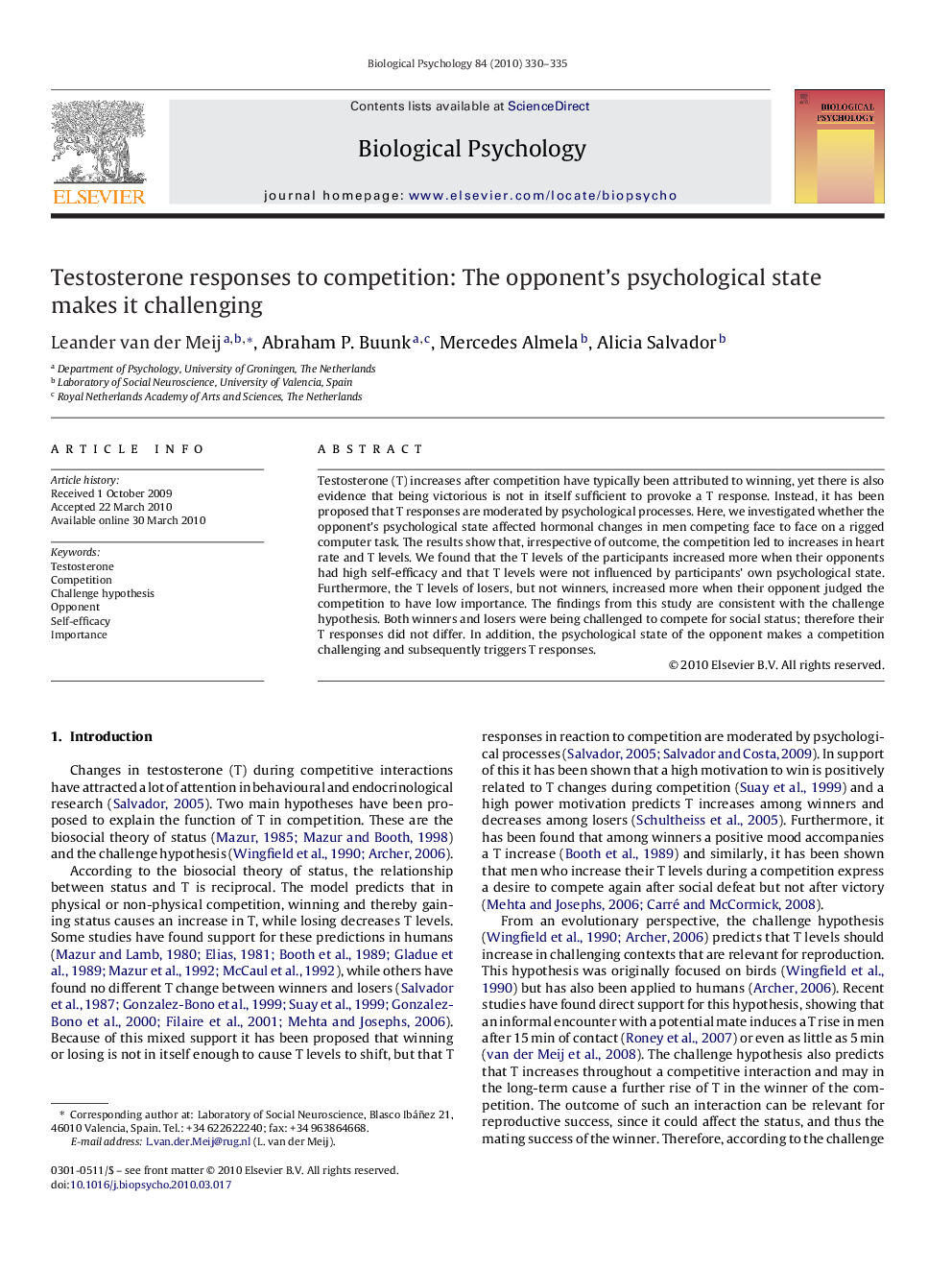| Article ID | Journal | Published Year | Pages | File Type |
|---|---|---|---|---|
| 921445 | Biological Psychology | 2010 | 6 Pages |
Testosterone (T) increases after competition have typically been attributed to winning, yet there is also evidence that being victorious is not in itself sufficient to provoke a T response. Instead, it has been proposed that T responses are moderated by psychological processes. Here, we investigated whether the opponent's psychological state affected hormonal changes in men competing face to face on a rigged computer task. The results show that, irrespective of outcome, the competition led to increases in heart rate and T levels. We found that the T levels of the participants increased more when their opponents had high self-efficacy and that T levels were not influenced by participants’ own psychological state. Furthermore, the T levels of losers, but not winners, increased more when their opponent judged the competition to have low importance. The findings from this study are consistent with the challenge hypothesis. Both winners and losers were being challenged to compete for social status; therefore their T responses did not differ. In addition, the psychological state of the opponent makes a competition challenging and subsequently triggers T responses.
